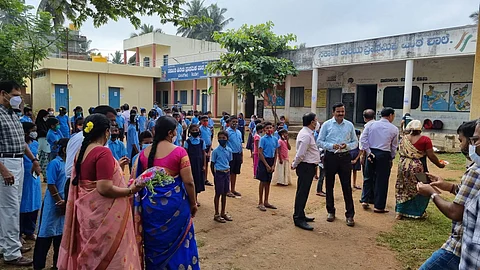

As COVID-19 cases are on a rise across the world, schools in some pockets, including in some Indian states, are going back on lockdown. In view of this, World Bank's Global Education Director Jaime Saavedra, on January 16, said that there is no justification for keeping schools closed in view of the pandemic.
Saavedra and his team have been tracking the impact of COVID-19 on the education sector. "There is no relationship between opening schools and the spread of the Coronavirus. There is no evidence linking the two and there is no justification now to keep the schools closed. Even if there are new waves of COVID-19, closing schools should be the last resort," Saavedra told PTI in an interview from Washington.
He said that it does not make sense to wait till children are vaccinated in order to keep schools open for them as there is "no science" behind it. "There is no country which has put the condition of reopening schools only after children are vaccinated. Because there is no science behind it and it does not make sense from public policy perspective," he said.
According to various simulations by the World Bank, health risks for children if schools are opened are low and the cost of the closure is extremely high. "Even if children get infected and with the Omicron variant...fatalities and serious illness among children is extremely rare. The risks for children are low and costs are extremely high," he said.
'Learning poverty'
Talking about the impact of school closures on children in India, Saavedra said that the "impact is more severe than previously thought" and the learning poverty is likely to increase much more than anticipated.
He explained that learning poverty is the inability to read and understand a simple text by the age of 10. "The learning poverty in India is expected to increase from 55 per cent to 70 per cent due to learning loss and more out-of-school children. Learning adjusted years of schooling is estimated to fall almost one full year of schooling while the average annual learnings might shrink in a pessimistic scenario by nine per cent per student in future,” he said.
Rationalising the curriculum, reorganising the academic calendar, preparing the teachers for the huge task ahead are among the suggestions that the World Bank has to reduce long-term learning losses caused by the closure of schools during the pandemic. "There is a critical need to have more data on learning losses from the states and the country as a whole."
